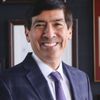Sal Mungia
Sal Mungia is a judge for Position 2 of the Washington Supreme Court. He assumed office on January 13, 2025. His current term ends on January 13, 2031.
Mungia ran for election for the Position 2 judge of the Washington Supreme Court. He won in the general election on November 5, 2024.
Mungia completed Ballotpedia's Candidate Connection survey in 2024. Click here to read the survey answers.
Biography
Sal Mungia was born in Tacoma, Washington. He earned a high school diploma from Clover Park High School, a bachelor's degree from Pacific Lutheran University in 1981, and a law degree from the Georgetown University Law Center in 1984. His career experience includes working as an attorney and law professor.[1]
As of 2024, Mungia was affiliated with the following organizations:[1]
- Washington State Bar Association
- American Bar Association
- Federal Bar Association for the Western District of Washington
- Tacoma-Pierce County Bar Association
- Washington State Association for Justice
- Latina/o Bar Association of Washington
- QLAW
- Asian Bar Association of Washington
- Pierce County Minority Bar Association
- The American Board of Trial Advocates
- Litigation Counsel of America
- American Bar Foundation.
- American Leadership Foundation
- Pacific Lutheran University, Board of Regents
- St. Luke's Episcopal Church in Tacoma, Vestry Board
Elections
2024
See also: Washington Supreme Court elections, 2024
General election
General election for Washington State Supreme Court Position 2
Sal Mungia defeated Dave Larson in the general election for Washington State Supreme Court Position 2 on November 5, 2024.
Candidate | % | Votes | ||
| ✔ |  | Sal Mungia (Nonpartisan)  | 50.1 | 1,644,253 |
 | Dave Larson (Nonpartisan)  | 49.4 | 1,624,309 | |
| Other/Write-in votes | 0.5 | 16,654 | ||
| Total votes: 3,285,216 | ||||
 = candidate completed the Ballotpedia Candidate Connection survey. = candidate completed the Ballotpedia Candidate Connection survey. | ||||
| If you are a candidate and would like to tell readers and voters more about why they should vote for you, complete the Ballotpedia Candidate Connection Survey. | ||||
Do you want a spreadsheet of this type of data? Contact our sales team. | ||||
Nonpartisan primary election
Nonpartisan primary for Washington State Supreme Court Position 2
Sal Mungia and Dave Larson defeated Todd Bloom and David Shelvey in the primary for Washington State Supreme Court Position 2 on August 6, 2024.
Candidate | % | Votes | ||
| ✔ |  | Sal Mungia (Nonpartisan)  | 43.4 | 762,797 |
| ✔ |  | Dave Larson (Nonpartisan)  | 36.4 | 640,116 |
 | Todd Bloom (Nonpartisan) | 16.3 | 286,298 | |
 | David Shelvey (Nonpartisan)  | 3.4 | 59,676 | |
| Other/Write-in votes | 0.4 | 7,347 | ||
| Total votes: 1,756,234 | ||||
 = candidate completed the Ballotpedia Candidate Connection survey. = candidate completed the Ballotpedia Candidate Connection survey. | ||||
| If you are a candidate and would like to tell readers and voters more about why they should vote for you, complete the Ballotpedia Candidate Connection Survey. | ||||
Do you want a spreadsheet of this type of data? Contact our sales team. | ||||
Withdrawn or disqualified candidates
- Michelle Adams (Nonpartisan)
Campaign finance
Endorsements
Mungia received the following endorsements.
- Gov. Jay Inslee (D)
- King County Democrats
Campaign themes
2024
Video for Ballotpedia
| Video submitted to Ballotpedia Released June 13, 2024 |
Ballotpedia survey responses
See also: Ballotpedia's Candidate Connection
Sal Mungia completed Ballotpedia's Candidate Connection survey in 2024. The survey questions appear in bold and are followed by Mungia's responses.
| Collapse all
- Ensuring that the rule of law is followed is the paramount duty of a state supreme court justice. Our country’s stability has been based upon the bedrock that we follow the law and not simply the desires of whoever is holding office at any point in time. The role of a judge is to ensure that the federal and state constitutions are followed, and the laws enacted by the legislature don’t violate those constitutions. It is not the role of judges to make the law – that is for the legislature. Judges have the duty to ensure that the law is applied fairly and justly to everyone.
- The legal system must be made to serve everyone. It’s not a fair contest when one party is represented by an attorney and the other party can’t afford an attorney. In that situation, the scales of justice aren't balanced. The parties are not starting on a level playing field. I have spent my career fighting to increase access to the civil justice system for those who can’t afford to hire an attorney. I have represented individuals and families for free where they have been defrauded and the contested amount was less than $1,000. I have represented the elderly for free who have been taken advantage of. I have volunteered at neighborhood legal clinics to give advice so that working people could get free legal advice.
- The law must be applied fairly and justly to everyone. When there is bias against a person because of who they are, then the legal system is not treating people fairly and justly. I have spent my career combatting bias in the legal system. I have spoken about bias at fifteen legal education seminars. I have written about bias within the legal system. I spent five years with five other attorneys crafting a proposed rule to combat bias that was ultimately enacted by our state supreme court. Lady Justice has her eyes blindfolded to represent that all people should be treated equally and fairly. That work in ongoing.
Note: Ballotpedia reserves the right to edit Candidate Connection survey responses. Any edits made by Ballotpedia will be clearly marked with [brackets] for the public. If the candidate disagrees with an edit, he or she may request the full removal of the survey response from Ballotpedia.org. Ballotpedia does not edit or correct typographical errors unless the candidate's campaign requests it.
Campaign website
Mungia’s campaign website stated the following:
| “ |
An accomplished and experienced trial and appellate lawyer Sal was born and raised in Lakewood, Washington. He is the son of working-class parents; his father was a cook in the United States Army and, later, at Western State Hospital in Lakewood. His mother was a seamstress and worked in a fabric store. After graduating from Lakewood’s Clover Park High School in 1977 he attended Pacific Lutheran University, graduating with honors in 1981. Sal went to law school at Georgetown University Law Center, graduating with honors in 1984. After graduating from law school and before entering private practice, Sal was a law clerk for both a justice on the Washington State Supreme Court and a federal district court judge. In 1986 Sal joined the law firm of Gordon Thomas Honeywell in Tacoma. Since doing so he has been a trial and appellate attorney representing individuals and businesses in civil lawsuits in both state and federal court.
A recognized leader in improving the justice system and our communities Sal has an established track record of commitment to improving the legal profession and the community, and to providing access to justice for people who cannot afford to hire an attorney:
Sal’s efforts in improving the justice system, including his tireless pro bono legal representation and his work towards improving access to justice have been recognized by multiple organizations:
|
” |
| —Sal Mungia's campaign website (2024)[3] | ||
Campaign finance summary

State supreme court judicial selection in Washington
- See also: Judicial selection in Washington
The nine justices of the supreme court are selected through contested nonpartisan elections and must run for re-election when their terms expire. Supreme court judges serve for six years.[4]
Qualifications
To serve on the supreme court, a judge must be:
- admitted to practice law in Washington; and
- under the age of 75.[5]
Chief justice
The chief justice of the supreme court is selected through a peer vote and has a set term of four years.[6]
Vacancies
In the event of a midterm vacancy, the governor appoints a replacement. The appointee serves until the next general election, at which point he or she may run to serve for the remainder of the predecessor's term.[7] If the resignation and subsequent appointment takes place after the filing period opens for that year's elections, the appointee must stand in the next year's election to remain on the bench.[8]
The map below highlights how vacancies are filled in state supreme courts across the country.
See also
External links
|
Candidate Washington State Supreme Court Position 2 |
Officeholder Washington State Supreme Court Position 2 |
Personal |
Footnotes
- ↑ 1.0 1.1 Information submitted to Ballotpedia through the Candidate Connection survey on June 13, 2024
- ↑ Note: This text is quoted verbatim from the original source. Any inconsistencies are attributable to the original source.
- ↑ Elect Sal Mungia for Washington State Supreme Court Position 2, “Meet Sal,” accessed July 22, 2024
- ↑ National Center for State Courts, Methods of Judicial Selection: Washington," accessed April 16, 2025
- ↑ National Center for State Courts, Methods of Judicial Selection: Washington," accessed April 16, 2025
- ↑ National Center for State Courts, Methods of Judicial Selection: Washington," accessed April 16, 2025
- ↑ Washington State Legislature, "Washington State Constitution," accessed April 16, 2025 (Scroll to Article IV, Section 3)
- ↑ National Center for State Courts, Methods of Judicial Selection: Washington," accessed April 16, 2025
| Political offices | ||
|---|---|---|
| Preceded by Susan Owens |
Washington State Supreme Court Position 2 2025-Present |
Succeeded by - |
Federal courts:
Ninth Circuit Court of Appeals • U.S. District Court: Eastern District of Washington, Western District of Washington • U.S. Bankruptcy Court: Eastern District of Washington, Western District of Washington
State courts:
Washington Supreme Court • Washington Court of Appeals • Washington Superior Court • Washington District Courts • Washington Municipal Courts
State resources:
Courts in Washington • Washington judicial elections • Judicial selection in Washington
| ||||||||||
State of Washington Olympia (capital) | |
|---|---|
| Elections |
What's on my ballot? | Elections in 2026 | How to vote | How to run for office | Ballot measures |
| Government |
Who represents me? | U.S. President | U.S. Congress | Federal courts | State executives | State legislature | State and local courts | Counties | Cities | School districts | Public policy |







